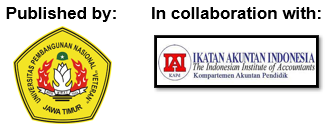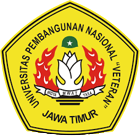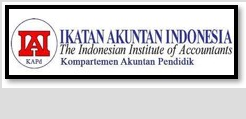Behavioral Drivers of Capital Structure and Their Impact on MSE Performance: Evidence from Indonesia
DOI:
https://doi.org/10.33005/jasf.v8i1.561Keywords:
Behavioral Biases, Emerging Markets, Financial Literacy, Financing Decisions, Micro-Enterprise Performance, Risk ToleranceAbstract
Purpose: This study explores how financial behavior influences capital structure decisions and, in turn, affects firm financial performance and sustainable business growth among micro and small enterprises (MSEs) in Indonesia. Drawing on behavioral finance theory, the study examines the effects of three antecedents, financial literacy, risk tolerance, and behavioral biases on capital structure decisions. Furthermore, it investigates the mediating roles of access to finance and financial planning behavior, and the outcome effect of financial performance on long-term business growth.
Method:Data was gathered from 420 MSE owner-managers across a variety of Indonesian sectors using a standardized questionnaire. Partial Least Squares Structural Equation Modeling (PLS-SEM) was used to examine the data.
Findings: Results revealed that all three behavioral antecedents significantly influenced capital structure decisions. Capital structure, in turn, had both direct and indirect effects on firm financial performance, mediated through improved financial access and planning. Moreover, financial performance was found to positively influence sustainable business growth.
Novelty/Value:By relating behavioral characteristics to organizational outcomes and financial decision-making in the setting of an emerging economy, the study adds to the body of literature. Targeted financial education and behavioral interventions are necessary to improve financing results for MSEs, among other practical implications.
Downloads
References
Abbas, A., Triani, N., Rayyani, W. O., & Muchran, M. (2023). Earnings growth, marketability and the role of Islamic financial literacy and inclusion in Indonesia. Journal of Islamic Accounting and Business Research, 14(7), 1088–1105. https://doi.org/10.1108/JIABR-12-2021-0322.
Abdallah, W., Harraf, A., Ghura, H., & Abrar, M. (2024). Financial literacy and small and medium enterprises performance: The moderating role of financial access. Journal of Financial Reporting and Accounting. https://doi.org/10.1108/JFRA-06-2024-0337.
Alam, R. (2025). Building Adaptive Workforces: HRM and Digital Competency in Tourism Innovation. Global Review of Tourism and Social Sciences, 1(2), Article 2. https://doi.org/10.53893/grtss.v1i2.357.
Almansour, B. Y., Elkrghli, S., & Almansour, A. Y. (2023). Behavioral finance factors and investment decisions: A mediating role of risk perception. Cogent Economics & Finance, 11(2), Article 2239032. https://doi.org/10.1080/23322039.2023.2239032.
Alnajem, A. Q. I., & Al-sudani, R. F. (2024). The role of financial and non-financial incentives in influencing the improvement of the academic performance level of employees: An applied study in Baghdad’s private colleges. Heritage and Sustainable Development, 6(1), 91–110. https://doi.org/10.37868/hsd.v6i1.393.
Alwan, R., & Risman, A. (2023). Determinants of Firm’s Value through Capital Structure, Financial Performance, and Company Growth. Indikator: Jurnal Ilmiah Manajemen Dan Bisnis, 7(2), 81. https://doi.org/10.22441/indikator.v7i2.18585.
Boshnak, H. (2023). The impact of capital structure on firm performance: Evidence from Saudi-listed firms. International Journal of Disclosure and Governance, 20(1), 15–26. https://doi.org/10.1057/s41310-022-00154-4.
Bossone, B. (2024). A Modigliani-Miller theorem for the public finances of globalized economies. International Review of Financial Analysis, 94, 103257. https://doi.org/10.1016/j.irfa.2024.103257.
Bui, T. N., Nguyen, X. H., & Pham, K. T. (2023). The Effect of Capital Structure on Firm Value: A Study of Companies Listed on the Vietnamese Stock Market. International Journal of Financial Studies, 11(3), 100. https://doi.org/10.3390/ijfs11030100.
Capolupo, N., Virglerova, Z., Rosa, A., & Palmucci, D. N. (2024). The relationship between biases and entrepreneurial Decision-Making. Evidence from Italian and Czech SMEs. International Entrepreneurship and Management Journal, 20(4), 3323–3348. https://doi.org/10.1007/s11365-024-00983-5.
Chhatoi, B. P., & Mohanty, M. (2023). Discriminating factors in financial risk tolerance: Investors’ economic perspective. Journal of Economic and Administrative Sciences. https://doi.org/10.1108/JEAS-09-2022-0204.
Fossen, F. M., König, J., & Schröder, C. (2024). Risk preference and entrepreneurial investment at the top of the wealth distribution. Empirical Economics, 66(2), 735–761. https://doi.org/10.1007/s00181-023-02475-x.
Hair, J. F., Sarstedt, M., Ringle, C. M., & Gudergan, S. P. (2025, May 7). Advanced Issues in Partial Least Squares Structural Equation Modeling. SAGE Publications Ltd. https://uk.sagepub.com/en-gb/eur/advanced-issues-in-partial-least-squares-structural-equation-modeling/book279526.
Hair, J., & Alamer, A. (2022). Partial Least Squares Structural Equation Modeling (PLS-SEM) in second language and education research: Guidelines using an applied example. Research Methods in Applied Linguistics, 1(3), 100027. https://doi.org/10.1016/j.rmal.2022.100027.
Hamid, F. S. (2025). Behavioral biases and over-indebtedness in consumer credit: Evidence from Malaysia. Cogent Economics & Finance, 13(1), 2449191. https://doi.org/10.1080/23322039.2024.2449191.
Harini, S., Pranitasari, D., Said, M., & Endri, E. (2023). Determinants of SME performance: Evidence from Indonesia. Problems and Perspectives in Management, 21(1), 471–481. https://doi.org/10.21511/ppm.21(1).2023.40.
Hatidja, S., Bahtiar, Mariana, L., & Quach, T. M. (2025). Employee Excellence and Workplace Diversity: Key Drivers of Satisfaction, Retention, and Brand Success in Ethnic Restaurants. Global Review of Tourism and Social Sciences, 1(2), 158-171. https://doi.org/10.53893/grtss.v1i2.319.
Hernawan, M. A., Heryana, A. D., Soepriyadi, I., Kusumawati, J., & Soehaditama, J. P. (2023). Financing planning in new normal era for increasing profit. Indonesian Journal of Business Analytics, 3(3), 875–884. https://doi.org/10.55927/ijba.v3i3.4567.
Hjeij, M. (2023). The heuristics applied by tech entrepreneurs in the Middle East during opportunity evaluation. Journal of Entrepreneurship in Emerging Economies, 15(6), 1354–1372. https://doi.org/10.1108/JEEE-07-2021-0294.
Hussain, A., Ahmad, S. A., Mia, S., Ahmed, F., & Prommee, P. (2024). Relationship between business information, business networking, access to finance and financial performance of social enterprises: Perspective of resource-based view and signalling theory. Cogent Business & Management, 11(1), 2285062. https://doi.org/10.1080/23311975.2023.2285062.
Jamaluddin. (2025). The Impact of Remote Working on Employee Productivity During COVID-19 in Indonesia: The Moderating Role of Job Level and the Influence of Cultural Adaptability. Global Review of Tourism and Social Sciences, 1(2), 88-98. https://doi.org/10.53893/grtss.v1i2.356.
Kahneman, D., & Tversky, A. (2013). Prospect Theory: An Analysis of Decision Under Risk. In Handbook of the Fundamentals of Financial Decision Making: Vol. Volume 4 (pp. 99–127). WORLD SCIENTIFIC. https://doi.org/10.1142/9789814417358_0006.
Kang, W., Guzman, K. L., & Malvaso, A. (2023). Big Five personality traits in the workplace: Investigating personality differences between employees, supervisors, managers, and entrepreneurs. Frontiers in Psychology, 14, 976022. https://doi.org/10.3389/fpsyg.2023.976022.
Kontuš, E., Šorić, K., & Šarlija, N. (2023). Capital structure optimization: A model of optimal capital structure from the aspect of capital cost and corporate value. Economic Research-Ekonomska Istraživanja, 36(2), 2147565. https://doi.org/10.1080/1331677X.2022.2147565.
Lin, G., Lin, M. S., & Song, H. (2024). An Assessment of Prospect Theory in Tourism Decision-Making Research. Journal of Travel Research, 63(2), 275–297. https://doi.org/10.1177/00472875231171673.
Lindset, S., Nygård, G., & Persson, S. (2024). Trade‐Off Theory for Dual Holders. Journal of Money, Credit and Banking, 56(7), 1611–1643. https://doi.org/10.1111/jmcb.13128.
Mansour, H. E. L., Holmes, K., Butler, B., & Ananthram, S. (2019). Developing dynamic capabilities to survive a crisis: Tourism organizations’ responses to continued turbulence in Libya. International Journal of Tourism Research, 21(4), 493–503. https://doi.org/10.1002/jtr.2277.
Masdupi, E., Firman, Rasyid, R., & Darni, M. O. (2024). Financial literacy and sustainability in SMEs: Do financial risk attitude, access to finance, and organizational risk-taking tolerance mediate? Asian Economic and Financial Review, 14(1), 43–58. https://doi.org/10.55493/5002.v14i1.4959.
McGrath, V., Nguyen, H., & Sheedy, E. A. (2024). Debt Aversion: Causes and Implications. SSRN Electronic Journal. https://doi.org/10.2139/ssrn.4964301.
Mensah, L., Bein, M. A., & Arhinful, R. (2025). The Impact of Capital Structure on Business Growth Under IFRS Adoption: Evidence from Firms Listed in the Frankfurt Stock Exchange. SAGE Open, 15(2). https://doi.org/10.1177/21582440251336533.
Mugano, G. (2024). SMEs’ Access to Finance, Growth, and Jobs. In G. Mugano & N. Dorasamy, SMEs Perspective in Africa (pp. 103–119). Springer Nature Switzerland. https://doi.org/10.1007/978-3-031-69103-4_6.
Muñoz-Céspedes, E., Ibar-Alonso, R., & Cuerdo-Mir, M. (2024). Individual entrepreneurial behavior and financial literacy. International Entrepreneurship and Management Journal, 20(3), 2263–2285. https://doi.org/10.1007/s11365-023-00936-4.
Myers, S. C., & Majluf, N. S. (1984). Corporate financing and investment decisions when firms have information that investors do not have. Journal of Financial Economics, 13(2), 187–221. https://doi.org/10.1016/0304-405X(84)90023-0.
Nkwinika, E., & Akinola, S. (2023). The importance of financial management in small and medium-sized enterprises (SMEs): An analysis of challenges and best practices. Technology Audit and Production Reserves, 5(4(73)), 12–20. https://doi.org/10.15587/2706-5448.2023.285749.
Rany, Y., Indradewa, R., Abadi, F., & Kustiawan, U. (2024). Strategic Financial Planning Analysis to Deliver Sustainable Profits. Jurnal Ilmiah Manajemen Kesatuan, 12(6), 2609–2618. https://doi.org/10.37641/jimkes.v12i6.2996.
Rao, P., Verma, S., Rao, A. A., & Joshi, R. (2023). A conceptual framework for identifying sustainable business practices of small and medium enterprises. Benchmarking: An International Journal, 30(6), 1806–1831. https://doi.org/10.1108/BIJ-11-2021-0699.
Siddik, A. B., Rahman, M. N., & Yong, L. (2023). Do fintech adoption and financial literacy improve corporate sustainability performance? The mediating role of access to finance. Journal of Cleaner Production, 421, 137658. https://doi.org/10.1016/j.jclepro.2023.137658.
Song, C. L., Pan, D., Ayub, A., & Cai, B. (2023). The Interplay Between Financial Literacy, Financial Risk Tolerance, and Financial Behaviour: The Moderator Effect of Emotional Intelligence. Psychology Research and Behavior Management, Volume 16, 535–548. https://doi.org/10.2147/PRBM.S398450.
Sulfiana, S. (2025). Driving Agricultural Productivity in Indonesia: The Impact of Digital Transformation and Regional Disparities. Global Review of Tourism and Social Sciences, 1(2), 172-181. https://doi.org/10.53893/grtss.v1i2.367.
Supiandi, S., Pramuja, R. A., Yuli, S. B. C., Yakub, M., & El Badriati, B. (2022). Assessing performance of Mawar Emas as a mosque-based Islamic financing program. Journal of Enterprise and Development, 4(2), 292–304. https://doi.org/10.20414/jed.v4i2.6500.
Syarifuddin, Indriani, D., & Junaidin. (2025). Balancing Demands and Resources: The Role of Psychological Resilience in Driving Employee Engagement. Global Review of Tourism and Social Sciences, 1(2), 145-157. https://doi.org/10.53893/grtss.v1i2.371.
Thawley, C., Crystallin, M., & Verico, K. (2024). Towards a higher growth path for Indonesia. Bulletin of Indonesian Economic Studies, 60(3), 247–282. https://doi.org/10.1080/00074918.2024.2432035.
Yadegaridehkordi, E., Foroughi, B., Iranmanesh, M., Nilashi, M., & Ghobakhloo, M. (2023). Determinants of environmental, financial, and social sustainable performance of manufacturing SMEs in Malaysia. Sustainable Production and Consumption, 35, 129–140. https://doi.org/10.1016/j.spc.2022.10.026.
Yeo, K. H. K., Lim, W. M., & Yii, K.-J. (2024). Financial planning behaviour: A systematic literature review and new theory development. Journal of Financial Services Marketing, 29(3), 979–1001. https://doi.org/10.1057/s41264-023-00249-1.
Zahid, R. M. A., Saleem, A., Maqsood, U. S., & Sági, J. (2023). Moderating role of audit quality in ESG performance and capital financing dynamics: Insights in China. Environment, Development and Sustainability, 26(5), 12031–12060. https://doi.org/10.1007/s10668-023-03636-9.














